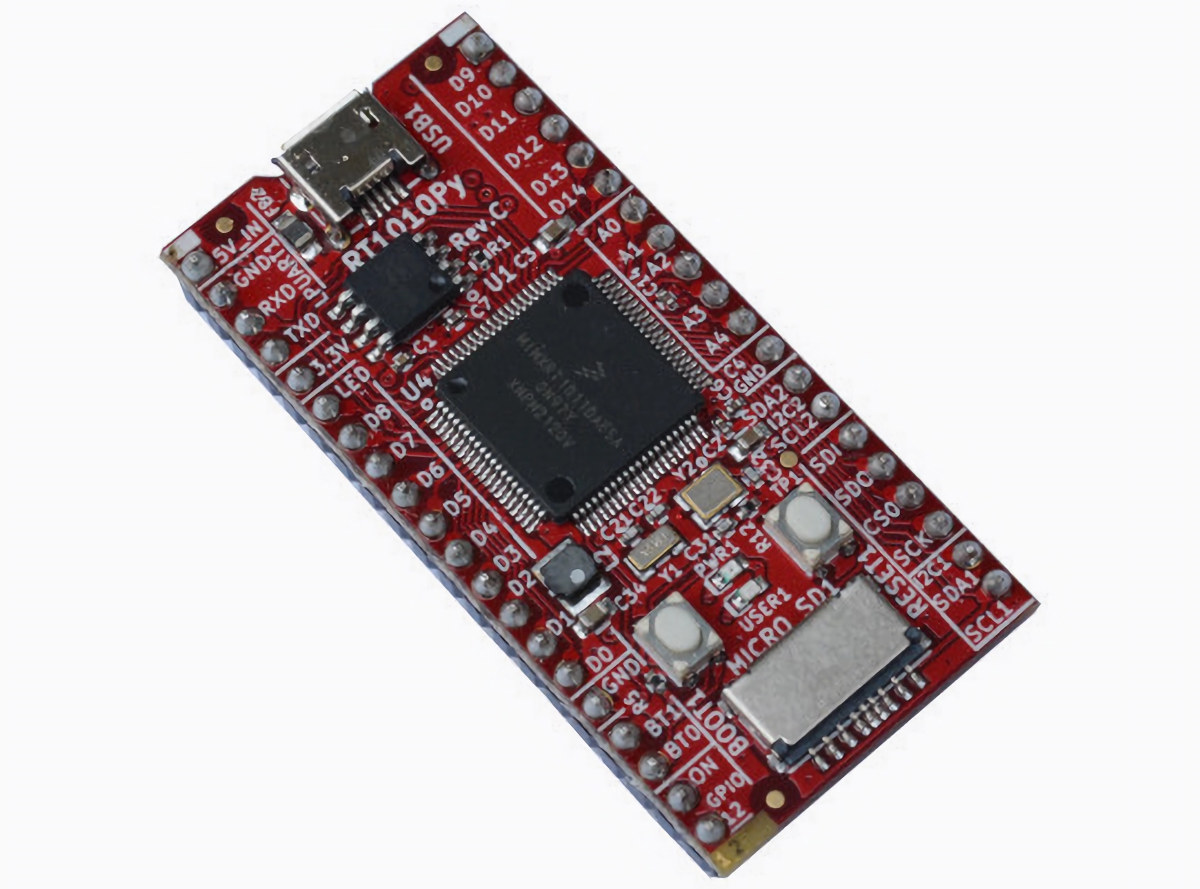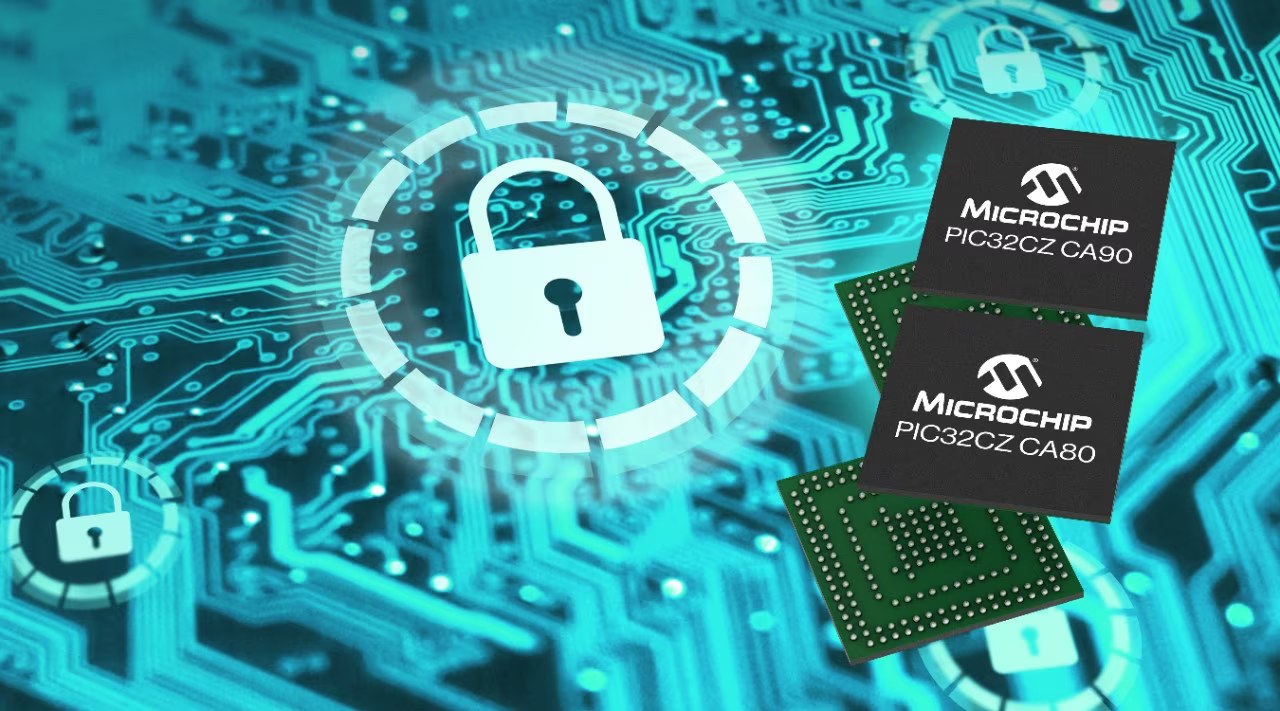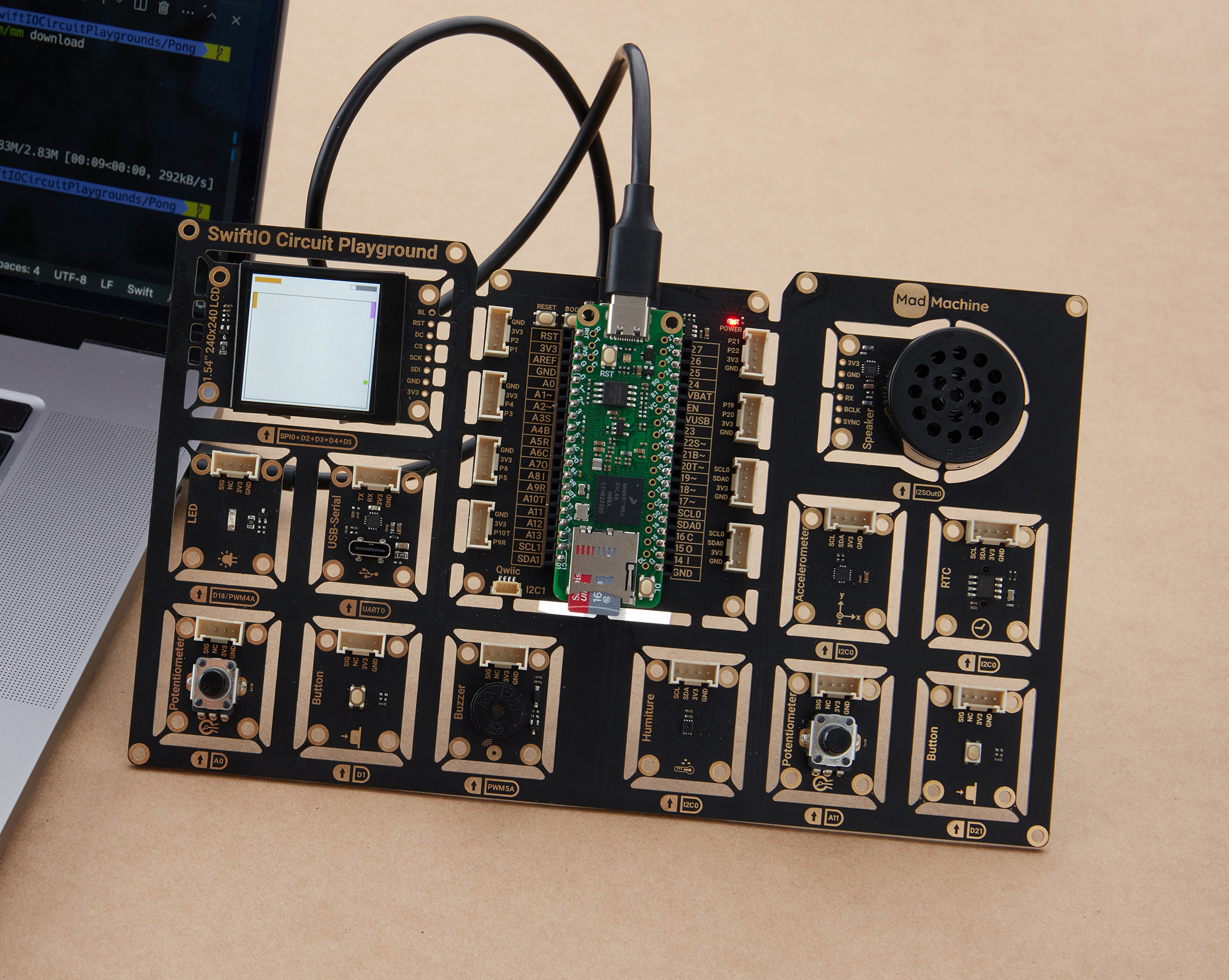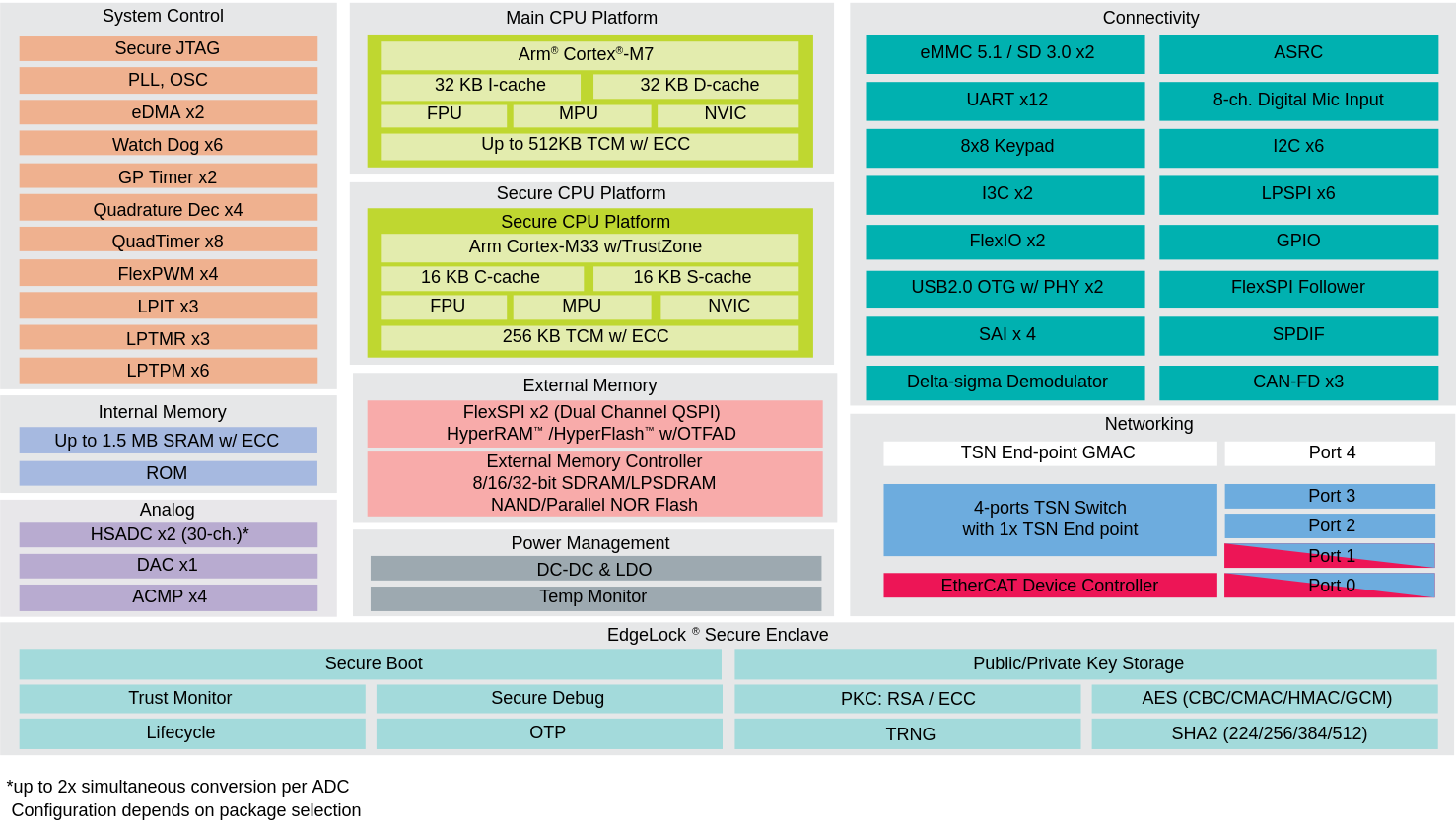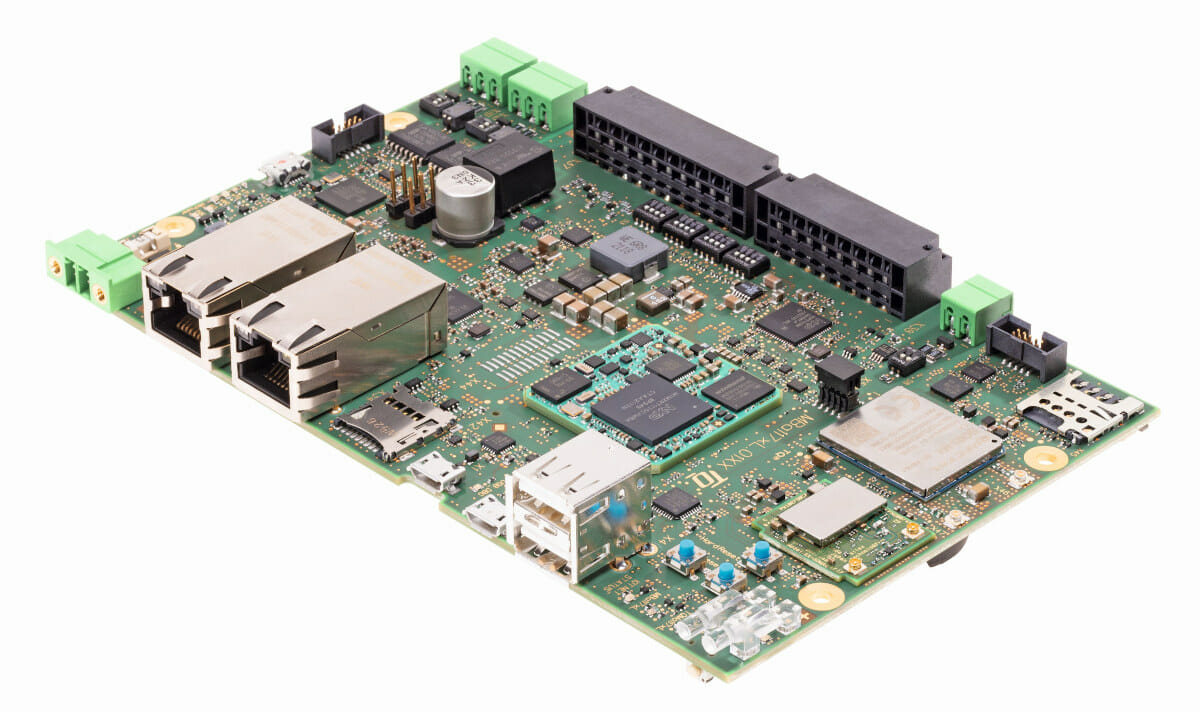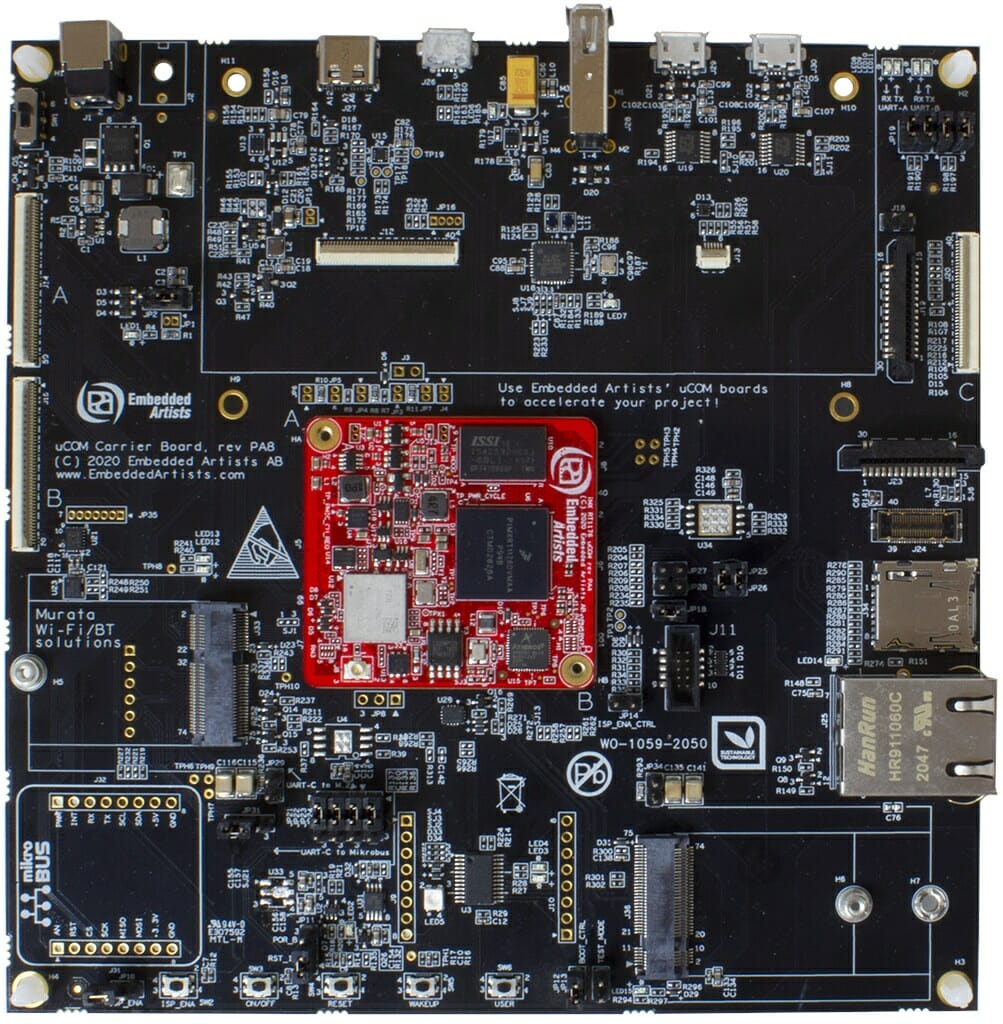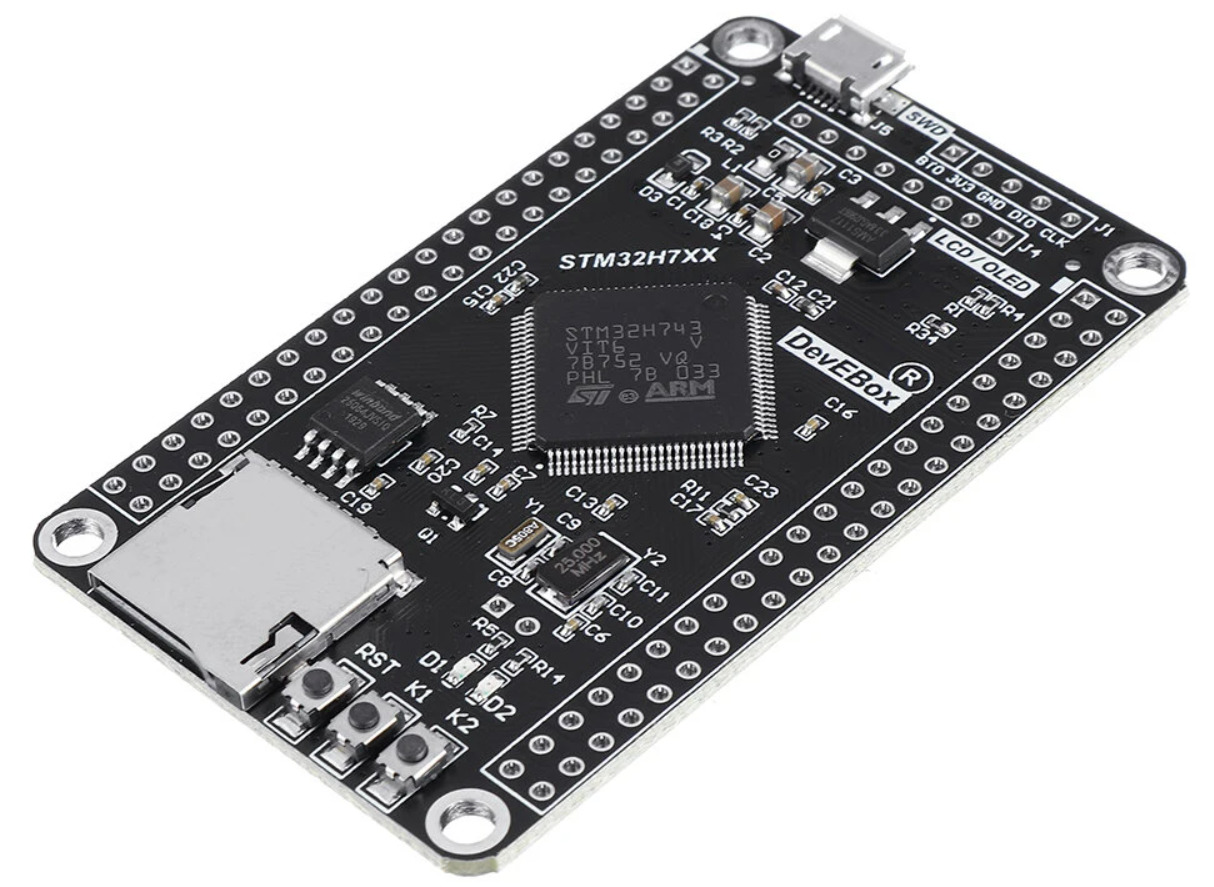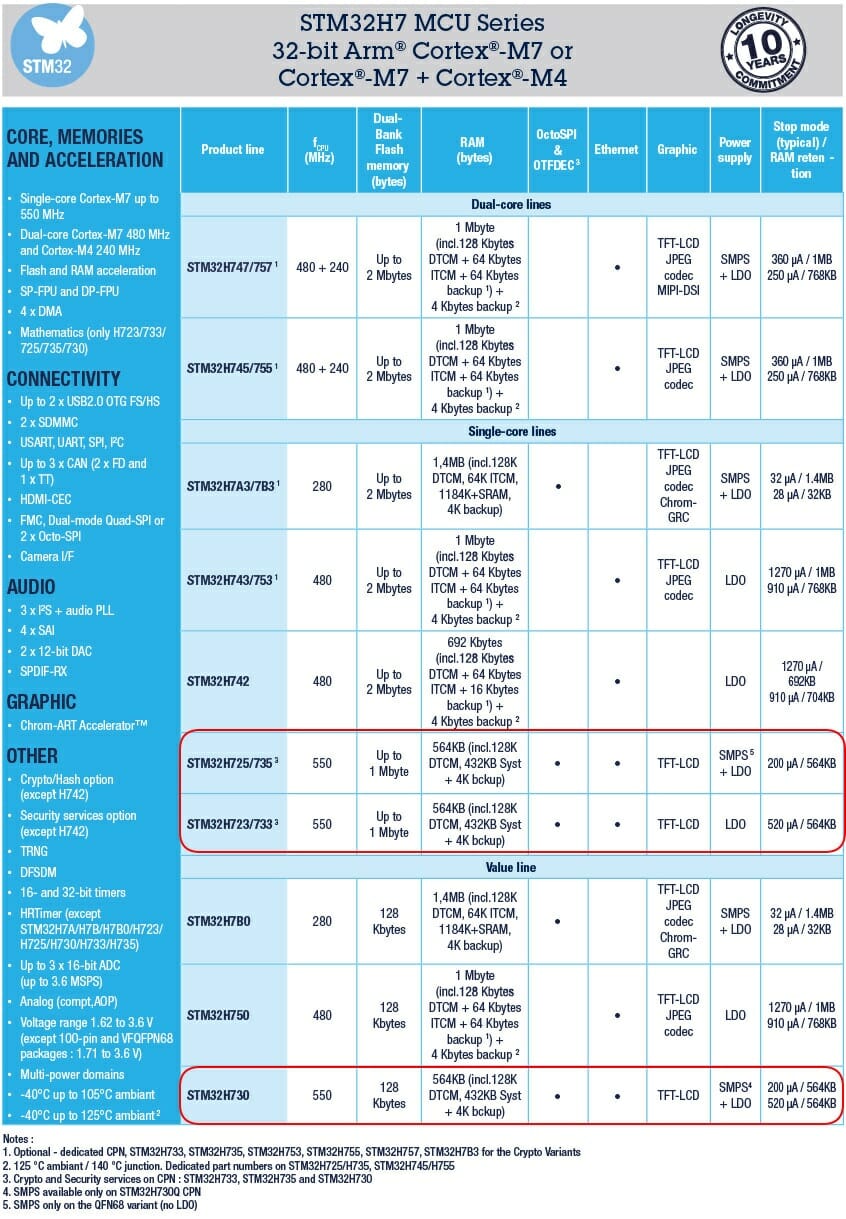Olimex RT1010-Py is a small development board powered by a 500 MHz NXP i.MX RT1011 Cortex-M7 MCU designed to run MicroPython and about four times faster than the Raspberry Pi Pico. The board comes with two 20-pin GPIO headers exposing various interfaces such as SPI and I2C, a microSD card slot for storage, two buttons, and a USB-C Type port for power and programming. The RT1010-Py also includes a 12-pin fUEXT connector to connect Olimex’s UEXT modules via a flat cable. Olimex RT1010-Py specifications: SoC – NXP iMX RT1011 crossover microcontroller with an Arm Cortex-M7 clocked at 500 MHz and 128KB SRAM/TCM Storage – 2MB SPI Flash, microSD card slot USB – 1x USB 2.0 OTG Type-C port Expansion 2x 20-pin headers with up to 15x GPIO, 3x UART, 2x SPI, 2x I2C, 1x I2S, 4x PWM. 5x analog input fUEXT connector (12-pin flat cable 0.5 mm step connector) with […]
Microchip PIC32CZ CA 300 MHz Arm Cortex-M7 MCU features a Hardware Security Module (HSM)
Microchip PIC32CZ CA is a new family of Arm Cortex-M7 microcontrollers with the PIC32CZ CA90 integrating a Hardware Security Module (HSM), and the PIC32CZ CA80 doing without one. The HSM in the PIC32CZ CA90 provides advanced security for industrial and consumer applications and operates as a secure subsystem with a separate MCU on board that runs the firmware and security features including hardware secure boot, key storage, cryptographic acceleration, true random number generator, and more. Microchip PIC32CZ CA key features and specifications: MCU core – Arm Cortex-M7 clocked at up to 300 MHz with 16KB ECC-protected instruction and data L1 cache, up to 256Kb of Tightly Coupled Memory (TCM): 128 KB each of ECC-protected Instruction and Data TCM Memory 512KB or 1MB SRAM with ECC, 8KB SRAM for backup mode 2MB, 4MB, or 8MB flash 2x 80KB boot flash memory 16-bit external bus interface (EBI) – Static memory controller for […]
SwiftIO Circuit Playground relies on Apple Swift programming for IoT projects (Crowdfunding)
A few years ago, Mad Machine introduced the SwiftIO board powered by an NXP i.MX RT1052 Arm Cortex-M7 crossover processor and programmable with Apple Swift programming language. The company has now launched a smaller version of the board named the SwiftIO Micro along with the SwiftIO Circuit Playground baseboard with plenty of modules to play with the SwiftIO Micro’s GPIO, and that reminds me of the Arduino Sensor Kit Base but with even more modules. SwiftIO Micro specifications: SoC – NXP i.MX RT1052 Arm Cortex-M7 crossover processor @ 600MHz System Memory – 32 MB SRAM Storage – 16MB flash, microSD card slot USB – 1x USB-C connector for power and programming Expansion – 3x 20-pin headers with up to 44 GPIOs, analog inputs, PWM, UART, SPI, I2C, I2S, CAN Bus, etc… See the pinout diagram below for details Misc – RGB LED, download and reset buttons Power Supply – 5V […]
NXP i.MX RT1180 Cortex-M7/M33 crossover MCU integrates GbE TSN for industrial IoT communication
NXP i.MX RT1180 is the latest member of the company’s i.MX RT Series crossover MCUss with application processor-like performance. The 800 MHz dual-core Arm Cortex-M7/M33 microcontroller is specifically designed for industrial IoT communication with a Gigabit Ethernet port supporting time-sensitive networking (TSN). NXP also highlights that it is the first crossover MCU to include an EdgeLock secure enclave that “eases the complexity of implementing robust, system-wide security intelligence for industrial IoT applications”, and the new processor aims to bridge the gap between existing industrial systems and Industry 4.0 system. NXP i.MX RT1180 key features and specifications: CPUs – Arm Cortex-M7 @ 800 MHz + Arm Cortex-M33 @ 240 MHz (Optional: single-core Arm Cortex-M33) On-chip Memory – Up to 1.5 MB SRAM (ECC protected) with 512 KB of TCM for Cortex-M7 and 256 KB of TCM for Cortex-M33 Memory & Storage I/F – 2x FlexSPI for HyperRAM or HyperFlash 8/16/32-bit SDRAM/LPSDRAM […]
TQ Embedded launches NXP i.MX RT1170 SoC module and SBC
TQ Embedded (aka TQ) has just announced the availability of the TQMa117xL system-on-chip module based on NXP i.MX RT1170 crossover processor family, and as well as MBa117xL single board computer (SBC) based on the 31×31 mm module. TQMa117xL’s small size has been achieved thanks to a 277-pad LGA design, with the module still integrating LP-SDRAM, Quad-SPI NOR flash and EPROM, a PMIC, as well as an optional security chip. TQMa117xL i.MX RT1170 SoM Specifications: Crossover processor (one or the other) NXP i.MX RT1171 with Cortex-M7 @ up to 1 GHz (Consumer) or 800 MHz (industrial), 1 GbE (AVB) NXP i.MX RT1172 with Cortex-M7 @ 800 MHz/ 1 GHz, graphics accelerators and camera/display interfaces, 1GbE (AVB) NXP i.MX RT1173 with Cortex-M7 @ 800 MHz (industrial only), Cortex-M4 @ 400 MHz, 1GbE (AVB), graphics accelerators and camera/display interfaces, tamper inteface NXP i.MX RT1175 with Cortex-M7 @ 800 MHz / 1 GHz, Cortex-M4 […]
Embedded Artists launches 1GHz NXP i.MX RT1176 Crossover MCU module and devkit
Microcontrollers used to be those cute little chips clocked at 8 MHz, but it’s now common to have MCUs clocked at one or two hundred Megahertz, and with Cortex-M7 cores, several hundred Megahertz is now possible, and NXP even pushed the limit to one Gigahertz with their i.MX RT1170 series of Cortex-M7/M4 Crossover MCUs announced over a year ago. Embedded Artists has now made a computer-on-module and a corresponding devkit based on NXP i.MX 1176 Crossover MCU clocked at one Gigahertz. iMX RT1176 uCOM MCU module delivers up to 6468 Coremarks, comes with up to 32MB SDRAM, 16MB QSPI flash, optional WiFi and Bluetooth, and various peripherals in a tiny 45x42mm form factor. iMX RT1176 uCOM module Specifications: SoC – NXP i.MX RT1176 processor with Cortex-M7 core up to 1 GHz/800MHz (Commercial vs industrial), Cortex-M4 core up to 400/200 MHz, 2MB internal SRAM, 2D GPU with OpenVG 1.1 support and […]
DevEBox STM32H7 Development Boards are made for Factory Automation
When it comes to STMicroelectronics’ STM32H7 series, there are three product lines- Dual-core lines, Single-core lines, and Value lines. ARM Cortex-M7 based – STM32H7 MCU series is capable of delivering 1327 DMIPS/ 3224 CoreMark. These MCUs are designed for factory automation (HMI, process control, power management), connectivity & security (Alarm panel, Wireless Modules). To continue with the growth of the STM32H7 series, we have China-based MCUdev DevEBox’s STM32H7XX-M development boards taking a single-core line and a value line module. The two STM32H7XX-M development boards use STM32H743VIT6 and STM32H750VBT6 core modules. The STM32H743VIT6 comes from a single core line that offers ARM Cortex-M7 gets up to 2 Mbytes of dual-bank flash memory and 1 Mbytes of RAM. While the STM32H750VBT6 module from the value line is one of the cost-effective STM32H7 devices featuring 128 Kbytes of flash memory. STM32H7 Development Boards These boards from MCUdev measure approximately 40mm x 68mm in […]
New STM32H7 Cortex-M7 MCUs Clock at 550 MHz, Feature Octal SPI Flash and Ethernet Interfaces
STMicro launched STM32H7 single-core Cortex-M7 microcontroller family a while ago, followed by some dual-core Cortex-M7/M4 models, with most clocked up to 480 MHz. The company has now announced five faster parts clocked at up to 550 MHz with STM32H723, STM32H733, STM32H725, STM32H735, and STM32H730 which STMicro claims is “the fastest core speed in the market among MCUs that integrate Flash storage on-chip to run deeply embedded applications”. The embedded flash storage is important, as you may now NXP i.MX RT1170 Cortex-M7/M4 crossover processor can reach up to 1 GHz but does not include flash storage. Key differences in STM32H7 550 Mhz MCUs We’ve highlighted the five new microcontrollers in the table above, and beside the higher 550 MHz frequency delivering 2778 CoreMark and 1177 DMIPS, we can see those are the only parts that support both OctoSPI flash and Ethernet, and all five parts are designed for HMI applications with […]


